Faith and firearms: Some Oklahoma religious leaders share their views on gun control
- Oops!Something went wrong.Please try again later.
The letter signed by more than 50 religious leaders was recently delivered to the governor with a list of demands aimed at curbing gun violence.
"As ministers of the gospel of Jesus Christ, and as agents of peace, we plead with you to use your legislative powers to enact sensible gun control regulations," the letter said.
This happened recently — in Tennessee.
Oklahoma's religious leaders haven't taken such action but some of them have definite thoughts about curbing the gun violence continuing to erupt on an increasing frequent basis across America. The topic is hard to ignore, particularly with the recent mass shootings in Buffalo, New York, and Uvalde, Texas, along with one much closer to home — the fatal shooting of four people at a medical clinic on Wednesday in Tulsa.
More: Tulsa shooting victim's 54-year marriage ends with no chance to say goodbye
Some leaders, like Rabbi Vered Harris, Archbishop Paul S. Coakley and the Rev. Jesse Jackson, said there are several measures that may be implemented to address gun violence while the Rev. Paul Blair said people and their morals are the issue and not guns.
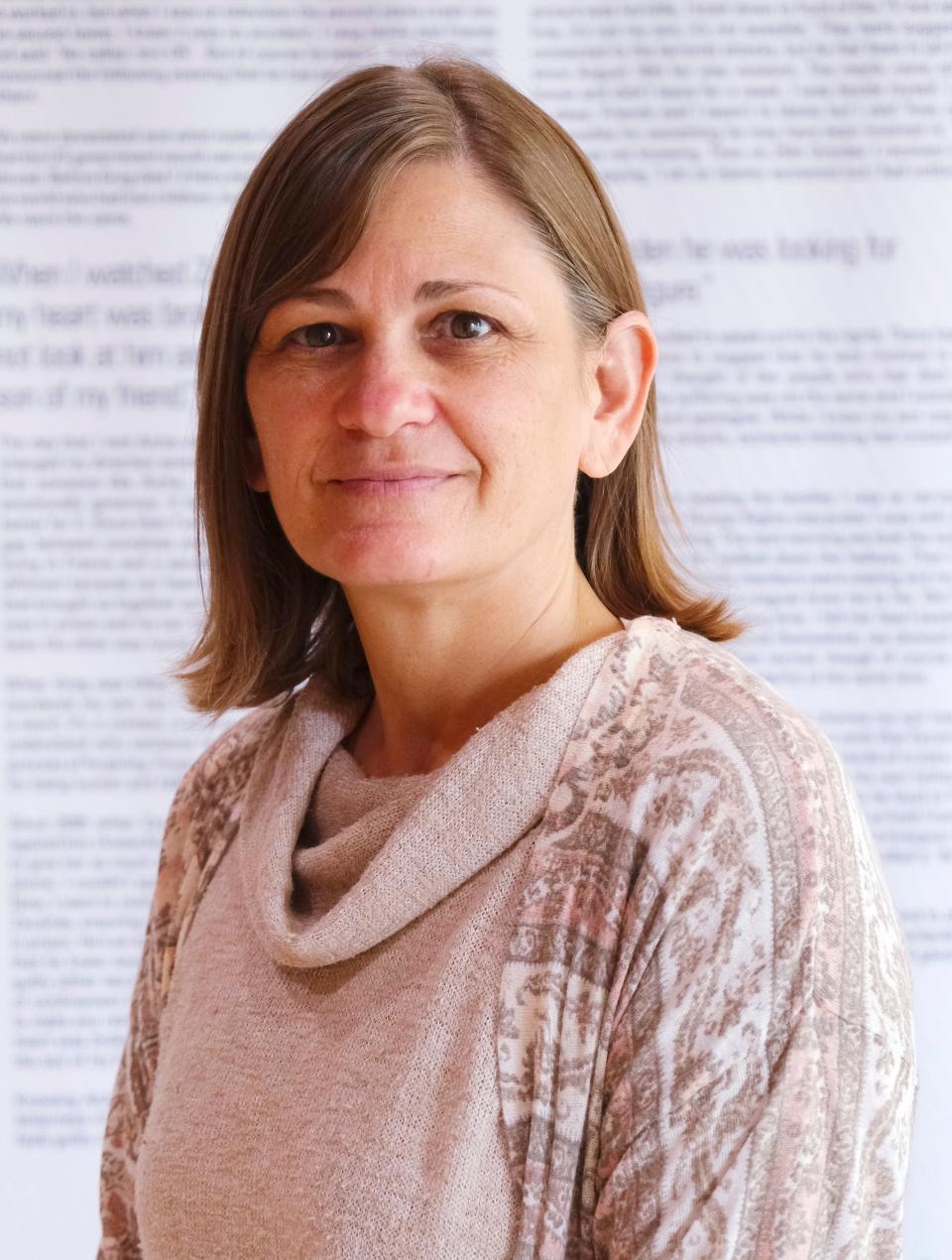
"My recommendation for gun control is that I do not believe that regular citizens should possess the types of guns, bombs, body armor, etcetera that our military possess," said Jackson, senior pastor of East Sixth Street Christian Church (Disciples of Christ) in Oklahoma City. "It keeps law enforcement from operating as quickly as they should act in crisis situations, such as in the school shooting is south Texas."
Harris, spiritual leader of Temple B'nai Israel, said researchers say commonsense laws could significantly reduce violent deaths and injuries.
"I would like to see us implement some of their recommendations for a period of 10 to 20 years — study what happens with suicide rates, mass shootings, and violent crime," she said "Let the data speak for itself."
By contrast, Blair, senior pastor of Fairview Baptist Church in Edmond, said inanimate objects like guns aren't the problem and shouldn't be the focus.
"For some reason, my car is never guilty of driving drunk," he said. "Likewise, my firearms never go on shooting sprees. Clearly, the problem is not with the inanimate object. If so, no one could escape a gun show alive. The problem is with the morality of the people."
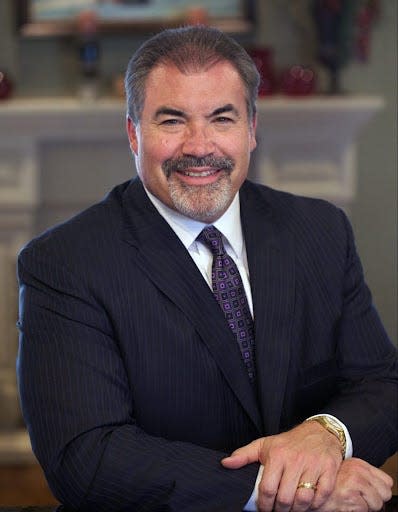
What's faith got to do with it?
Unsurprisingly, religious leaders pointed to their theology as the foundation for their views on addressing gun violence.
More: How to help Tulsa shooting victims, families
Jackson said the biblical verse that undergirds him as a Christian is Matthew 5:9 which says "“Blessed are the peacemakers for they shall be called the children of God.”
"I believe that we are called to 'wage peace' like others wage war," Jackson said. "I think that we have abdicated our trust in God when we are so frightened of one another that we cannot feel safe unless we are walking around with firearms on our sides like this is Dodge City in the 1800’s. Even places as wild as Tombstone, Arizona, had gun laws."
Blair said Scripture is "consistent in the right to defend your life, family, and property with deadly force."
He cited Exodus 22:2-3.
"While the Bible is consistent with the command forbidding murder and abortion, man is allowed to kill trees for firewood or construction, animals for food and clothing, capitol punishment for first-degree murder, defensive warfare and killing in self-defense," he said.
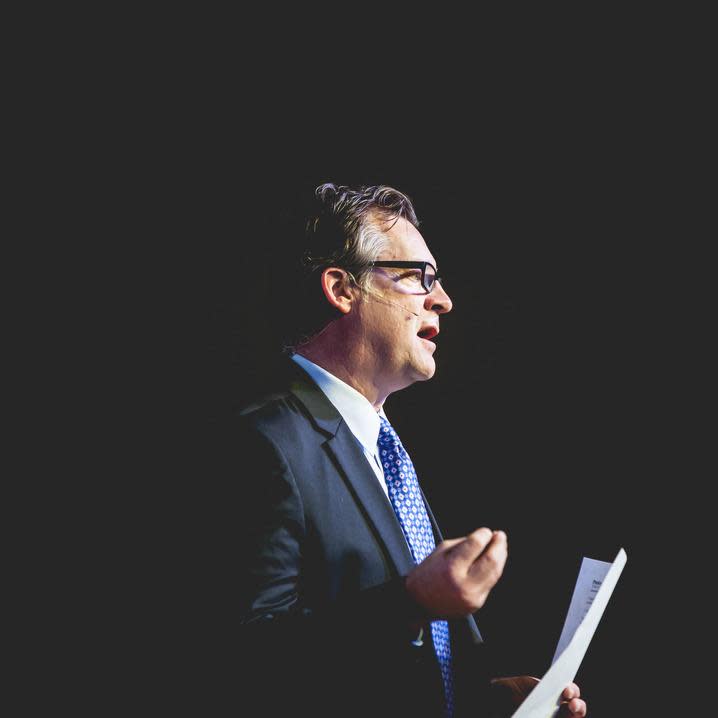
Meanwhile, the Rev. Jon Middendorf, senior pastor of Oklahoma City First Church of the Nazarene, said his views on curbing gun violence evolved from his theology about the sanctity of human life.
"We're on the side of life," he said. "I don't know how much stock I put into the opinions of those people who want to fight for the sanctity of life who then aren't willing to put forth any real effort or policy effort to try to preserve life by reining in gun violence."
He felt compelled to preach on the topic of gun violence on May 29.
"I think I am some combination of despairing and angry and exasperated," the minister said. "I had heard from our people that they wanted me to say something about it (gun control) and they didn't have to push me too hard — I wanted to."
Harris said one of the highest values in Judaism is protecting people's health and well-being, which includes physical safety.
"There are few values more important than saving lives, reducing trauma and protecting each other," she said.
"This is how we love. This is how we show we are listening when God tells us to love each other."
More: "He said, 'I just killed several people,'" ex-wife of Tulsa gunman says in 911 call
Richard Cheek, one of the leaders of Joy Mennonite Church, said he grew up Southern Baptist and was a member of the denomination for much of his life. He said he came from a military family, his father was a career officer. Cheek said he began exploring the theology of nonviolence espoused by groups like the Mennonites after his experiences serving in the Vietnam War. He left his Southern Baptist roots about 10 years ago for the Mennonite Church largely because of the latter's adherence to nonviolence teachings and that informs his views about gun violence.
"There's a big emphasis in our theology about following the teachings of Jesus," he said. " And we feel very strongly that Jesus taught non violence."
There is a propensity for violence in most cultures, Cheek said. "We just think more people tend to solve things with violence. We just think if people were more accepting of the idea of nonviolence, we would just have a lot less of that."
Some people tend to criticize Mennonites for being passive, but they aren't passive, he said. They believe in "active peacemaking — but only in ways that are nonviolent."
Calling on elected officials
Several religious leaders said communities should be able to call on elected leaders to confront the growing problem of gun violence head on.
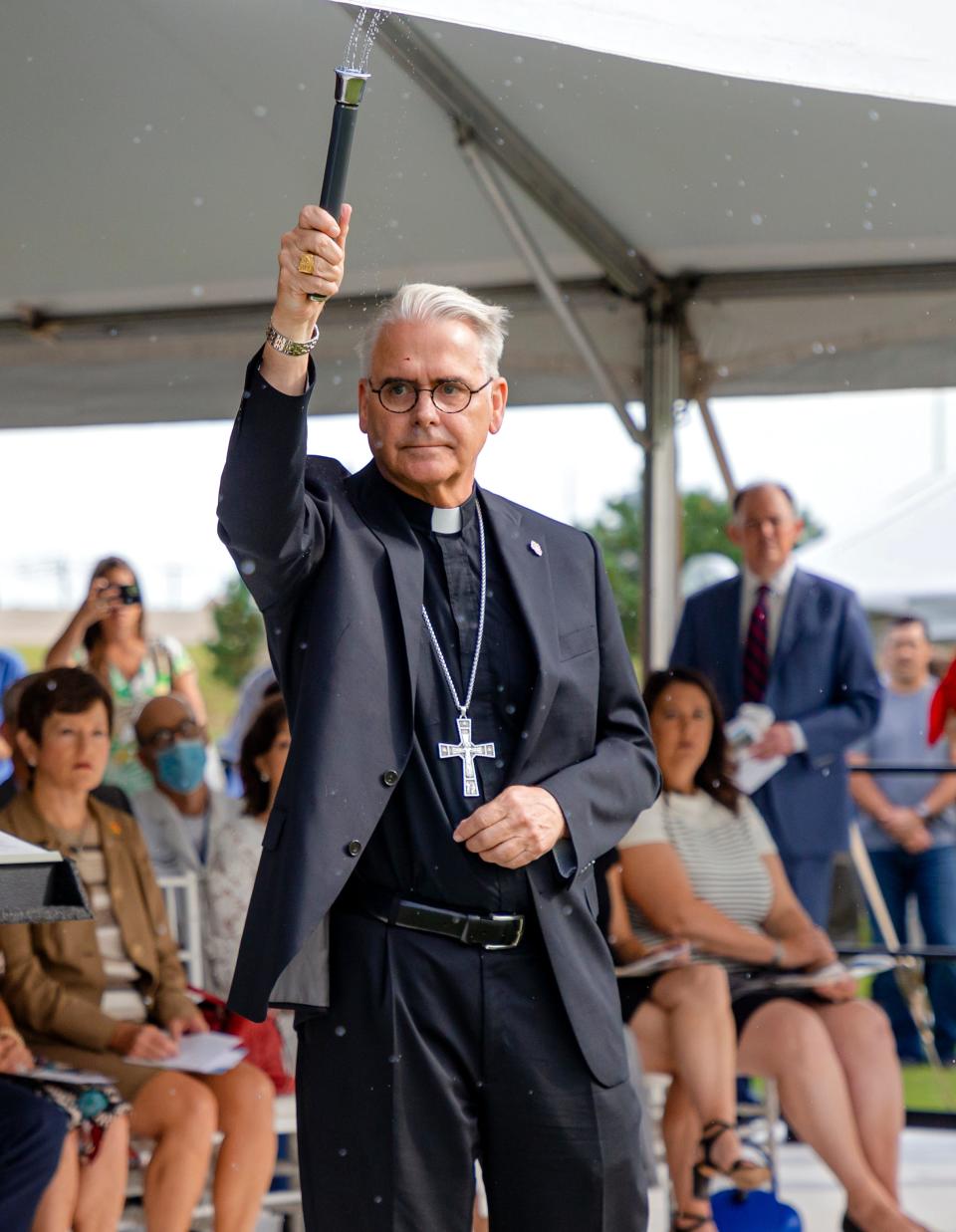
The Most Rev. Paul S. Coakley, archbishop of the Roman Catholic Archdiocese of Oklahoma City, shared his views on the matter.
“We do not advocate for freedom from obligation or restriction, but rather freedom for excellence, freedom for human flourishing, freedom for living a good and holy life. The common good of society includes respect for life and for peace," Coakley said in a statement.
" As we mourn the loss of innocent life at Saint Francis in Tulsa, we encourage a discussion among our local and national leaders about preventing gun violence and suicide, which makes up two-thirds of gun-related deaths."
For specifics, Coakley said preventative measures can include broader access to mental health services, improved education and reporting of potential threats, gun safety in homes and reasonable measures of gun control such as background checks, waiting periods and closing loopholes.
"We need to provide concrete, tangible love and support to victims and their families, and also to those who are struggling, especially with isolation, alienation or depression," he said. "There are so many families, schools and communities that are in need of healing. Please pray for mercy, for justice and for peace.”
Cheek said he couldn't speak for all Mennonites but he knew how many members of his local congregation felt about decreasing gun violence.
"Well, it's not hard at all to say what our position is — we're in favor as of as much gun control as you can possibly have," he said. "We recognize that there are legitimate uses for guns, but we would ban all assault-type guns. Some of us would ban handguns except for special circumstances where people have to apply to get them. Almost anything the NRA (National Rifle Association) is for, were against."
Jackson said he wasn't against legislation being passed to address to address what he described as a "crisis."
"Thoughts and prayers without legislation is cowardly, disrespectful to the dead and dereliction of my priestly duties," he said. "You cannot claim to be 'pro life,' then do noting to protect life."
The minister also shared his thoughts about the Second Amendment, which is championed by many Americans opposed to gun restrictions.
"Our constitution is a living, breathing document. It always has been. That is why we have amendments," Jackson said. "The framers of our constitution could not conceive of the type of weapons that we have today. This is not what they imagined with the Second."
He said it's important to note that how the constitution's framers viewed the entire world has been challenged since that time and much of it refuted.
"Even with the Declaration of Independence, it has been established that (Thomas) Jefferson never meant 'all' when he wrote the words, 'We hold theses truths to be self-evident that all men are created equal…' All did not mean landless white men, Native Americans, Africans or women. What the Second Amendment means in modernity needs to be examined today.
Rabbi Harris, like Coakley, said she had some idea elected leaders could consider.
"We have tried reducing regulations and we are watching the numbers of active shooter and gun-related violence increase. Is there a correlation? Let's try stricter regulations and track it. Then let's make data-driven decisions to do what is proven to reduce violent death and gun-related injuries among our children, our neighbors, our friends, and our communities.
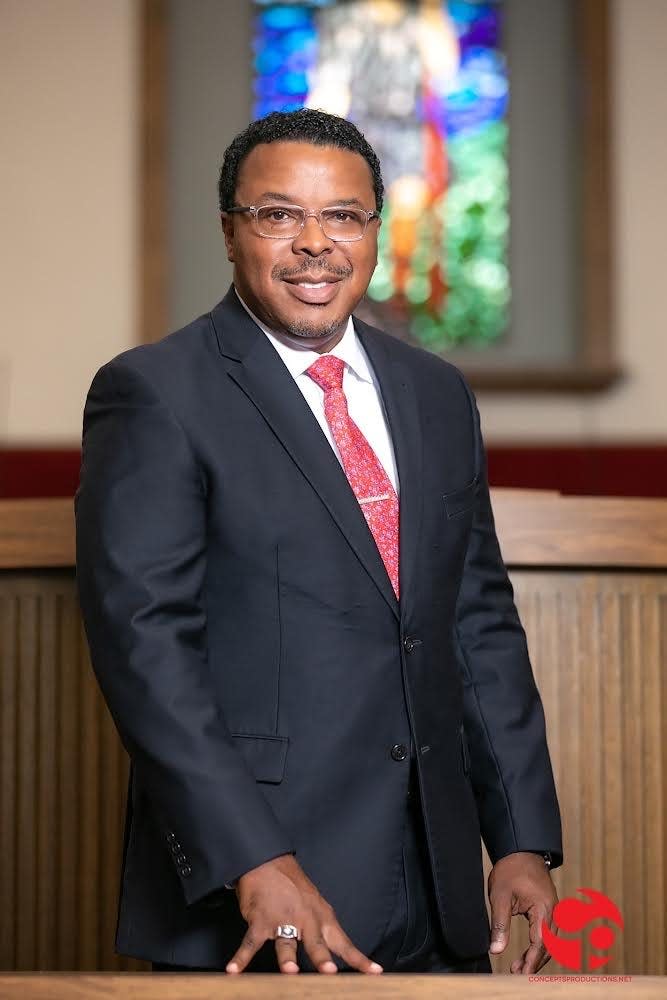
The Rev. Derrick Scobey, pastor of Ebenezer Baptist Church, said elected officials should take into account the numerous mass shootings that have occurred across the country, the "senseless loss of lives and the grief and trauma" caused by guns.
"I believe that if legislators look at gun reform through these set of lenses, they will then come to the realization that a change needs to take place," he said. "As most of us know, the Second Amendment is not an unlimited right to own guns, so I do believe there needs to be sweeping gun legislation."
Blair had an entirely different view of potential legislation considered gun control.
He said there's no basis for such legislation in America and he is against these types of measures.
"Congress has no authority to act even if they wanted to do so," Blair said. "Congress is the only branch of government that can pass laws. Neither the President, nor the court can make law."
America's founding fathers, he said, believed that God endowed man with certain unalienable rights.
"That truth was stated in our birth certificate when the 13 colonies became 13 states by seceding from British tyranny," Blair said. "The right to defend oneself, one’s property and one’s family from harm, spoil or attack was among them as part of natural law."
Blair said the states had fought to free themselves from tyranny and didn't want to create a central government with too much power.
Thus the Bill of Rights, which includes the Second Amendment, was crafted.
He said the Bill of Rights does not grant citizens any rights but it is 10 absolute declarations "reminding everyone for all time" of what the central or federal government could not do under any circumstances.
"Under no circumstance does the federal government have any authority to infringe upon the people’s right to keep and bear arms," the pastor said.
"My stance is irrelevant. However, I support the people’s unalienable right to keep armaments and use them for their legal defense of life, family and property."
What happened in Tennessee?
The ministers' plea to Tennessee Gov. Bill Lee followed a May 28 incident in which several people were shot, three fatally, in downtown Chattanooga. According to news reports, the Rev. Kevin Riggs, pastor of Franklin Community Church in Franklin, Tennessee, delivered the ministers' letter to the governor's office but he said it was dismissed.
This article originally appeared on Oklahoman: Oklahoma religious leaders share gun control opinions following Tulsa

